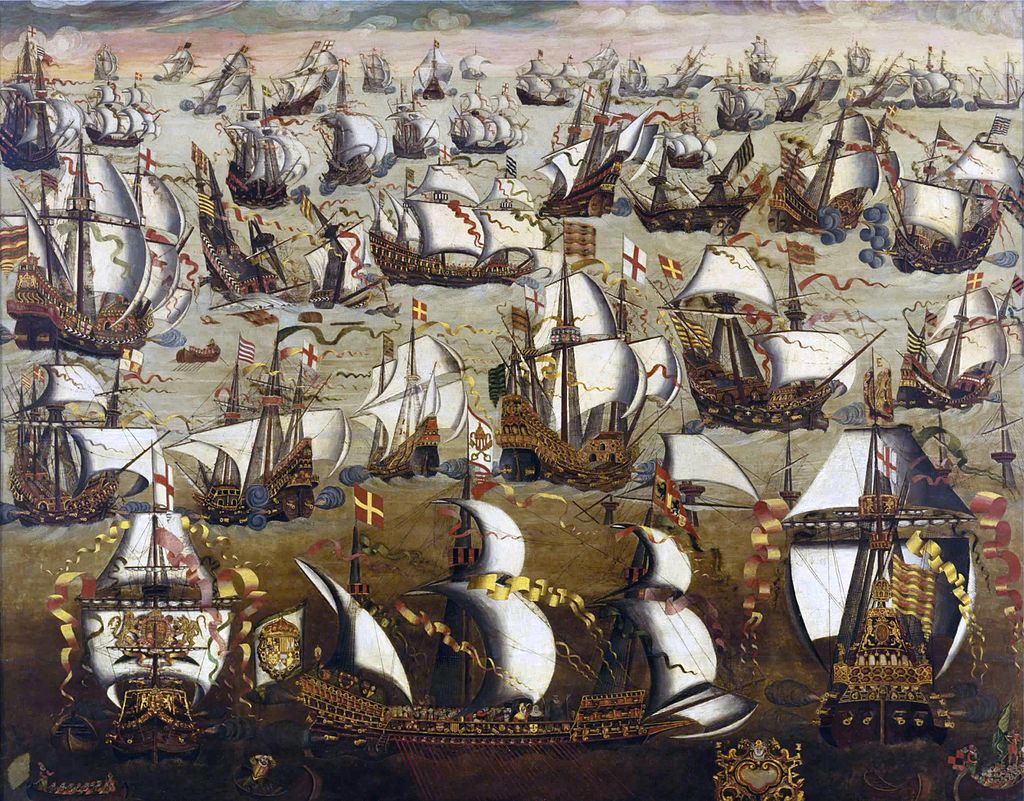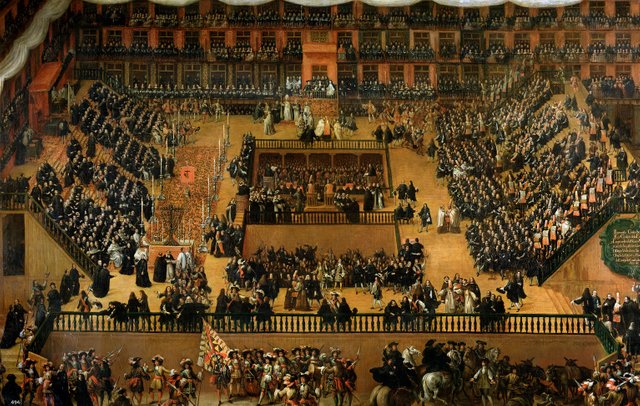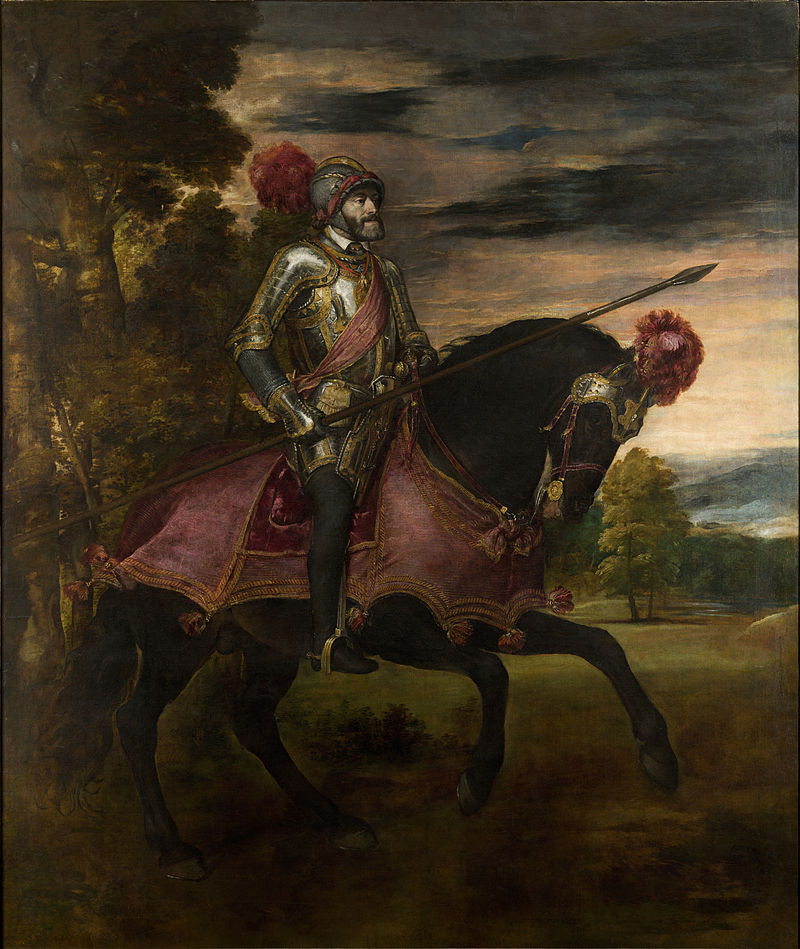Insieme verso uno sviluppo globale (X parte)
SPANISH POWER IN EUROPE

As already stressed, the demand was a decisive factor in the crisis. If Italy is taken into consideration, it is flooded by the accumulation of human capital and money capital over the centuries, perhaps even over six centuries.
Spain, conversely, after the discovery of the Indies and at the same time of the Americas, from whose lands come new products still important today for our economy, taste and society, begins to import gold and silver from Peru and Mexico.
We from the East Arab we have imported, having been always in contact with this area, products to which we have given less and less importance. Certainly it is something strident for us especially Sicilians, certainly not for the Calabrians or the Florentines, because the Arab world we had in Sicily has obviously brought citrus fruits, sugar cane (at the time you have the sweetie and the drinks with honey, since sugar was something rare).
Well, the production of sugar cane is imported into Sicily; silk was also traded with the East and silkworm breeding was imported, with the consequent production of the same silk in Sicily, particularly in Messina. To these is added also cotton, produced first in the United States and then in Egypt; hence the production was exported to Sicily. The compass also passes through our island, which is then sent to other parts of Italy, etc.

Come già sottolineato la domanda è stato un fattore decisivo della crisi. Se si prende in considerazione l’Italia, questa viene inondata dall'accumulazione di capitale umano e capitale denaro nei secoli, forse anche oltre sei secoli.
La Spagna, viceversa, dopo la scoperta delle Indie e allo stesso tempo delle Americhe, dalle cui terre provengono dei nuovi prodotti importanti ancora oggi per la nostra economia, gusto e società, inizia ad importare oro e argento dal Perù e dal Messico.
Noi dall'oriente arabo abbiamo importato, essendo stati sempre a contatto con quest’area, prodotti a cui abbiamo dato sempre meno importanza. Certamente si tratta di qualcosa di stridente per noi soprattutto siciliani, non certo per i calabresi o i fiorentini, perché il mondo arabo che abbiamo avuto in Sicilia ha portato ovviamente gli agrumi, la canna da zucchero (all'epoca si ha il dolcino e le bevande col miele, poiché lo zucchero era qualcosa di raro).
Ebbene viene importata la produzione di canna da zucchero in Sicilia; si commerciava con l’Oriente anche la seta e si assistette all'importazione di allevamenti di baco da seta, con la conseguente produzione della stessa seta in Sicilia, in particolare a Messina. A questi si aggiunge anche il cotone, prodotto prima negli Stati Uniti e poi in Egitto; da qui la produzione venne esportata in Sicilia. Passa per la nostra isola anche la bussola, che poi viene inviata in altre parti d’Italia ecc.

This is how we see products coming from the East, but what's coming from the United States? Potato, tomato, corn, essential product, consumed especially during the periods of poverty in northern Italy (that's why polentoni, we also have always eaten wheat bread with the crisis). The latter product obviously caused diseases, such as pellacra, a disease that mainly affects the skin.
There is therefore this great expansion in the world, where as said, Spain receives gold and silver from its American colonies, which spends, however, enormously in wars. A document of the time tells us that the gold of Spain was like hail on the roofs, that is, it slips away. In fact, Spanish gold served essentially for the growth and economic development of the other European countries, in the sense that the demand was addressed abroad. Why?
Initially, the arrival of gold, and therefore the consequent increase in demand, led to a response from the offer, ie the number of craftsmen, the producers in other sectors and production increased. However, we take into account that Spain has a fairly dry, less fertile terrain for 2/3. Consequently, this increase in demand necessarily determines, before the offer is adjusted, an increase in production.
The problem is that the continuous growth of demand, even in terms of weapons by the crown, obviously does not find an adequate development in the offer. Because? Because it finds in the market of bottlenecks, called in economic terms, that is a lack of specialized workers. In Spain the arrival of so much wealth causes an increase in education, above all classical, an increase of priests, poets, but without such an increase in workers, since social values held that the craftsman rather than being an important element of society he was considered with some disdain.
Si tratta come si vede di prodotti proveniente dall’Oriente, ma dagli Stati Uniti cosa proviene? Patata, pomodoro, mais, prodotto essenziale, consumato soprattutto durante i periodi di povertà al nord Italia (ecco perché polentoni; noi anche con la crisi abbiamo sempre mangiato il pane di grano). Quest’ultimo prodotto ovviamente provocava delle malattie, come la pellacra, malattia che investe soprattutto la pelle.
Vi è quindi questa grande espansione nel mondo, in cui come detto la Spagna riceve oro e argento dalle proprie colonie americane che spende, però, enormemente in guerre. Un documento dell’epoca ci dice che l’oro della Spagna era come la grandine sui tetti, ossia scivola via. Infatti, l’oro spagnolo è servito essenzialmente alla crescita e allo sviluppo economico degli altri paesi d’Europa, nel senso che la domanda si rivolgeva all’estero. Perché?
Inizialmente l’arrivo di oro, e quindi il conseguente incremento della domanda, ha determinato una risposta da parte dell’offerta, cioè sono aumentati il numero di artigiani, i produttori anche negli altri settori e la produzione. Teniamo conto, però, che la Spagna ha un terreno per 2/3 piuttosto arido, poco fertile. Di conseguenza questo incremento della domanda determina necessariamente, prima che l’offerta si adegui, un aumento della produzione.
Il problema è che la crescita continua della domanda, anche in termini di armi da parte della corona, ovviamente non trova un adeguato sviluppo nell’offerta. Perché? Perché trova nel mercato delle strozzature, dette in termini economici, ossia una carenza di operai specializzati. In Spagna l’arrivo di così tanta ricchezza determina un aumento dell’istruzione, soprattutto classica, un aumento di preti, poeti, ma senza un tale incremento di operai, poiché i valori sociali ritenevano che l’artigiano anziché essere un elemento importante della società era considerato con un certo disprezzo.

There is therefore insufficient growth of skilled workers, thus creating a supply-side bottleneck, so that Spain is forced to increase its imports from abroad. So, instead of being the question the flywheel, the element sufficient to determine the economic growth of a country, is the demand itself that leads to an increase in imports. That is, it determines the economic growth of other countries.
The Spanish productive structure was, therefore, characterized by a lack of productive capacity: it was then said, in fact, that the production structure required 5-6 years before meeting the demand. It is clear that it is difficult to think, for example, that I wait 5-6 to wear a wool sweater; the request moved, therefore, abroad. In conclusion, Spain is unable to meet a growing demand, coming from the influx of gold and silver.
But there is also a problem of mentality, which someone compares with today's one of our midday. In a document of a Spanish character, in fact, it is stated: "after all, why do we have to worry about whether our productive structure does not adapt? Italian cities produce for us, other products can be bought from Bruge, wool can be bought in England. That is, all the nations of the world work for Spain, while this one does not work for anyone ". For the Spaniards, all this turned out to be a source of pride: "we are not at the service of anyone and the others are at our service".
However, when the inflow of gold from the Americas decreases significantly, an economic crisis also starts in Spain. So the attempt to conquer Europe with war wars (note that this was the first in history, which will be followed by that of Louis XIV and Napoleon) and to establish an empire like the Chinese fails. One wonders since then: given that in China there is an empire, there is an Indian continent that lives in peace, because industrial development was not born in these lands, just like all the discoveries of a productive nature that took place in Europe?
Vi è quindi una crescita non sufficiente degli operai specializzati, creando così una strozzatura dal lato dell’offerta, cosicché la Spagna è costretta ad aumentare le proprie importazioni dall’estero. Quindi, anziché essere la domanda il volano, l’elemento sufficiente per determinare la crescita economica di un paese, è la domanda stessa che comporta un incremento delle importazioni. Cioè determina la crescita economica di altri paesi.
La struttura produttiva spagnola era, perciò, connotata da una carenza di capacità produttiva: si diceva allora, infatti, che la struttura produttiva richiedeva 5-6 anni prima di far fronte alla domanda. È chiaro che è difficile pensare, per esempio, che io attenda 5-6 per indossare un maglione di lana; la domanda si trasferisce, perciò, all’estero. In conclusione la Spagna non è in grado di sopperire ad una domanda crescente, proveniente dall’afflusso di ricchezza di oro e argento.
Ma vi è anche un problema di mentalità, che qualcuno paragona a quella di oggi del nostro mezzogiorno. In un documento di un personaggio spagnolo, infatti, si afferma: “in fondo, perché dobbiamo preoccuparci se la nostra struttura produttiva non si adegua? Le città italiane producono per noi, altri prodotti li possiamo comprare da Bruge, la lana si può comprare in Inghilterra. Cioè tutte le nazioni del mondo lavorano per la Spagna, mentre questa non lavora per nessuno”. Per gli spagnoli, tutto questo risultava essere motivo di orgoglio: “noi non siamo al servizio di nessuno e gli altri sono al servizio nostro”.
Quando, però, l’afflusso di oro dalle Americhe diminuisce in maniera notevole, si avvia una crisi economica anche per la Spagna. Così il tentativo di conquistare l’Europa con guerre guerreggiate (si noti che questo è stato il primo della storia, a cui si susseguirà quello di Luigi XIV e Napoleone) e di instaurare un impero come quello cinese fallisce. Ci si chiede da allora: dato che in Cina esiste un impero, esiste un continente indiano che vive in pace, perché lo sviluppo industriale non è nato in queste terre, così come tutte le scoperte di carattere produttivo che sono avvenute viceversa in Europa?

Probably these conflicts in all the countries of Europe require that in every country there is an economic growth, to be able to obviously pay the armies and equip them with the most innovative weapons. During this period, the pope condemned and excommunicated whoever used a deadly element in war, the crossbow, a kind of reinforced arch.
But it was in the same period that it came from China (although not yet known to use, as well as paper) gunpowder. Well the artillery developed, which changed the type of war; there would certainly not have been the European conquest and the subjugation of India, China and Latin America, if there had not been the Spanish galleons.
In fact, there has been an increase in production techniques also in the field of shipbuilding and, above all, the adoption of artillery within ships: wherever the European galleon appeared at that time (which had a huge range like that Genoese ships), terrified, just for the presence of artillery on the ship. It was an advance of the even more deadly machine gun, but the existence of these firearms had already determined a definitive prevalence of the European West over the rest of the world.
Thus we are witnessing a race to the invention of production techniques in this field by the various countries, to avoid succumbing to another country. The wealth of a country was, therefore, crucial to pay the armies: Spain, in fact, loses almost all of its gold in an attempt to regain Belgium and Holland, so much so that the Spanish armies have mutinied in Belgium , during the war, in the second half of the 500, just because you could not get the gold to pay these armies. The other countries, on the other hand, like France and Holland, did not have gold mines, which had to be procured therefore with an increase in production capacity.
How does this affect all of Europe? How does productivity move? And the returns? How do other countries grow and, above all with what consequences?
Probabilmente questi conflitti presenti in tutti i paesi d’Europa richiedono che in ogni paese vi sia una crescita economica, per poter ovviamente pagare gli eserciti e dotarli delle armi più innovative. Il papa, durante tale epoca, condannò e scomunicò chiunque usasse un elemento micidiale in guerra, la balestra, una sorta di arco rafforzato.
Ma fu nello stesso periodo che provenne dalla Cina (anche se non ancora saputa utilizzare, così come la carta) la polvere da sparo. Ebbene si è sviluppata l’artiglieria, che ha cambiato il tipo di guerra; non ci sarebbe stata certamente la conquista europea e la sottomissione dell’India, della Cina e dell’America latina, se non ci fossero stati i galeoni spagnoli.
Vi è stato, infatti, un incremento delle tecniche produttive anche nel campo delle costruzioni navali e, soprattutto, l’adozione dell’artiglieria all'interno delle navi: ovunque appariva in quell'epoca il galeone europeo (che aveva una portata enorme come quella delle navi genovesi), terrorizzava, proprio per la presenza dell’artiglieria sulla nave. Si trattava di un anticipo dell’ancor più micidiale mitragliatrice, ma l’esistenza di queste armi da fuoco, aveva già determinato una prevalenza definitiva dell’Occidente europeo sul resto del mondo.
Si assiste, così, ad una corsa all'invenzione di tecniche produttive in questo campo da parte dei vari paesi, per evitare di soccombere rispetto ad un altro paese. La ricchezza di un paese era, quindi, determinante per pagare gli eserciti: la Spagna, difatti, perde quasi tutto il proprio oro nel tentativo di riconquistare il Belgio e l’Olanda, tant'è vero che gli eserciti spagnoli si sono ammutinati in Belgio, durante la guerra, nella seconda metà del 500, proprio perché non si riusciva a far arrivare l’oro per pagare questi eserciti. Gli altri paesi, invece, come Francia e Olanda non avevano miniere d’oro, che se lo dovevano procurare perciò con l’incremento della capacità produttiva.
Questa situazione come influenza l’intera Europa? Come si muove la produttività? E i rendimenti? Come crescono gli altri paesi e, soprattutto con quali conseguenze?
Reference sources:
"Storia della civiltà spagnola e americana", G. Bellini - 1963 - La Goliardica
"Storia della guerra civile spagnola", H. Thomas - 1963 - Einaudi
"Storia economica d'Italia: dall'Ottocento ai giorni nostri", V. Castronovo - 1995 - Einaudi
"Il prodotto delle regioni e il divario Nord-Sud in Italia (1861-2004)", P. Malanima e V. Daniele - Rivista di politica economica, 2007
"Storia d'Italia dal dopoguerra a oggi", P. Ginsborg - 2014 - Giulio Einaudi Editore
"Economia e società in Sicilia dopo l'Unità: 1860-1894, l'industria", G. Barbera Cardillo - 1982 - Genève
"Economia e società in Sicilia dopo l'Unita: 1860-1894, l'agricoltura", G. Barbera Cardillo - 1982 - Droz
"La Calabria industriale preunitaria, 1815-1860", G. Barbera Cardillo - 1999 - Edizioni scientifiche italiane
"Mezzogiorno senza meridionalismo: la Sicilia, lo sviluppo, il potere", G. Giarrizzo - 1992 - Marsilio
"Navigazioni e viaggi", G.B. Ramusio - 1985 - Einaudi

Congratulations @fabiob! You have completed some achievement on Steemit and have been rewarded with new badge(s) :
Click on any badge to view your own Board of Honor on SteemitBoard.
To support your work, I also upvoted your post!
For more information about SteemitBoard, click here
If you no longer want to receive notifications, reply to this comment with the word
STOPCongratulations @fabiob! You have completed some achievement on Steemit and have been rewarded with new badge(s) :
Click on any badge to view your own Board of Honor on SteemitBoard.
For more information about SteemitBoard, click here
If you no longer want to receive notifications, reply to this comment with the word
STOP